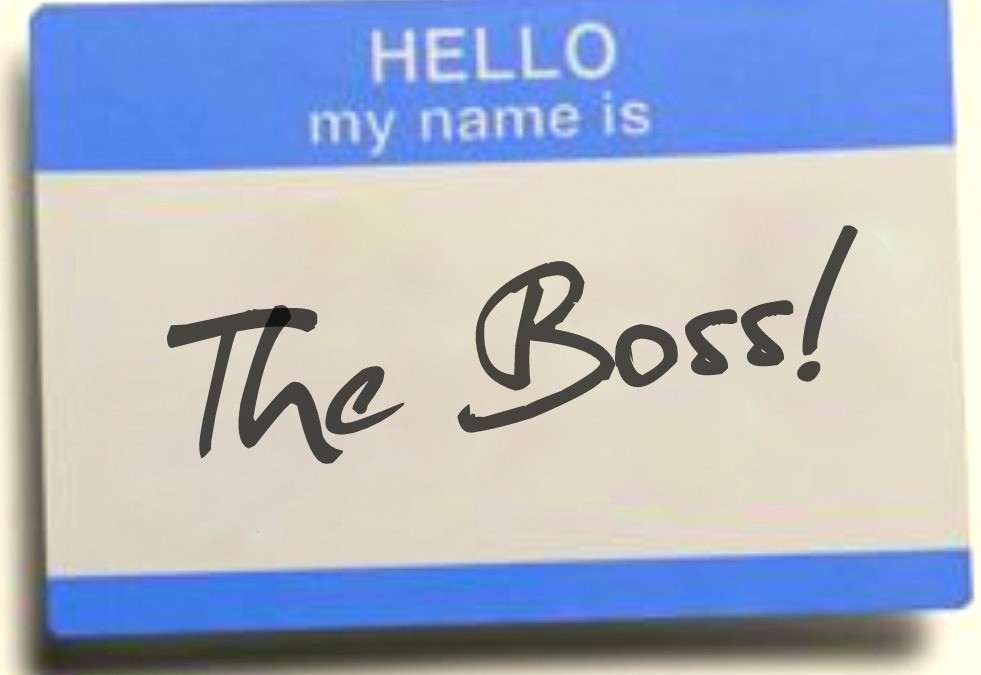“If you don’t build your dreams, someone else will hire you to help build theirs.”
Some employees and executives love everything about their job and would never even consider leaving for self-employment. Others can’t wait for the opportunity to leave the corporate world. Being part of a company does offer the security of a regular paycheck, but if recent changes in the economy have taught us anything, it’s that THIS kind of security is an illusion! Starting a business creates a new set of hesitations for a lot of people. There is so much uncertainty involved that the idea of starting a new company can be overwhelming. At the same time, being told what to do and working on someone else’s terms can be difficult after a long period of time. The idea of freedom and setting our own schedule is attractive, but as the freedom increases, so does the level of risk. In order to achieve complete freedom, you must take risks and overcome any fear. It is easy to play it safe and stay at the same company in the same job, but the rewards and freedoms of self-employment are worth the risk. Making the transition to self-employment takes work, time, and an ability to accept failure and learn from it.
Battle the fear of failure
Facing the fear of self-employment isn’t easy, but it is possible to be prepared and overcome that overwhelming feeling of incompetence. It’s very daunting to face fears and take the plunge into becoming self- employed. Many professionals are their own worst critic, and they second-guess themselves on a consistent basis. Is this idea good enough? Is this business plan sound? Will success follow? And, worst of all: What if I fail? Instead of focusing on these questions, ask yourself the only question that truly matters: What’s the worst that can happen? Once you ask yourself that question and consider how you would deal with the worst if it did happen, you will feel much better. Fear has a way of escalating the situation in our minds. The fear is always worse than the actual situation. When it comes to self-employment, the best way to face fear and move forward is through sound planning: be prepared to be successful. Know yourself, and know how you work best. Work out a schedule based on self-employment needs and goals, and stick to it.
When should I start?
The temptation with self-employment is to wait until everything is perfectly in order before you begin the process of becoming self-employed. There is no need to wait! Time is of the essence; as soon as you decide to become a consultant or start your own company, you should begin immediately. Establish a solid plan and stay with the planned schedule. There will be plenty of opportunities for you to learn as you go, so don’t hesitate to begin now. You should give a lot of thought to what you’re good at, what you can offer, who your target customers are, how you’ll make money, how much you should charge, and how you can add value beyond what is already offered out there. But don’t allow indecisiveness stop you at the start.
Should I start in a bad economy?
The economy shouldn’t hinder you from starting your new endeavor. Many companies are struggling—you can use this time to learn how to start a business in a difficult economic landscape. Social media has made it significantly easier to start a business and advertise your services. It is easy to network and get the word out about your new business. While big corporations struggle in a bad economy, your small business will be able to adjust to the market much better, and you’re less subject to the problems of financial markets, real estate markets, and other external factors.
Final Considerations
What type of business is best for you?
Build on your passions and strengths!
- Identify what you are good at and what you enjoy. These two factors will lead your new endeavor into success.
- Most executives have considerable experience in a particular industry. If you have a solid platform of knowledge to build from, you will accelerate your learning and productivity.
Build vs. buy
- You can try to build your business from the ground-up, or you can seek out partners or franchises that have a proven business model. If you can be in business for yourself, but not by yourself and without substantial fees, you will be much further ahead and minimize your risk.
Recurring revenue vs. billable time
- Be careful about business models based solely on billing your time. Although they can produce lucrative assignments, you will always be forced to trade your personal time for working with your clients.
- The best businesses are those that build recurring revenue streams independent of your time. By providing your clients with products and services that become an integral part of how they operate their organizations, you will “make money in your sleep,” and build equity in your business that you can sell when you want to fully retire.
If you need help making the decision or transition to self-employment, give me a call TODAY at 8o0-974-3692 and let’s set up a FREE consultation!
To your SUCCESS!
Roland Gilbert, The “Success Coach”
www.perennialgrowth.com


I’ll be contacting you soon. I have a few more steps ducks to get in a row. Glad you shared this.
Thank you
Hey Sheree, thank you so much for the response! Looking forward to working with you, but don’t wait to long…”ducks” have a way of flying away when you least expect them to!